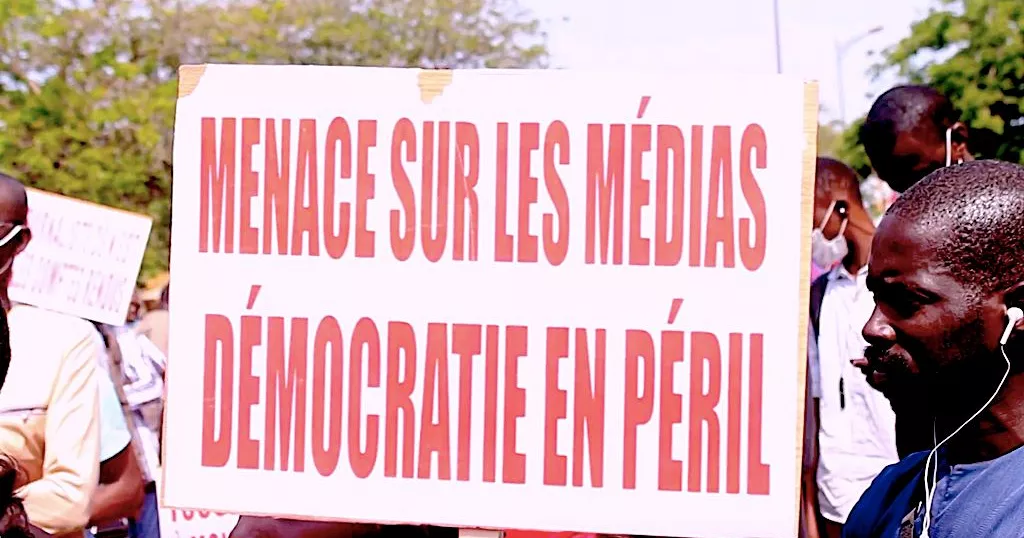
Senegal: Media freedom threatened by government crackdown
The recent riots in Senegal have led to a government crackdown on the media, leaving journalists struggling in the face of violence and threats. Walf TV, a private channel critical of the government, was suspended for thirty days, accused of broadcasting violent images involving minors and making subversive comments that allegedly undermine the state’s stability during the riots.
The government’s actions against the media have resulted in a decline in press freedoms, leading to Senegal dropping 31 places in the Reporters Without Borders ranking. The Futurs Médias group, owned by singer Youssou Ndour and caught between the government and opposition, also faced violent attacks on its head office by rioters. The Centre for Information Science and Technology Studies in Dakar (Cesti) had vehicles set on fire during the riots.
These attacks on the media pose a significant threat to freedom of expression, but there are also concerns about journalistic excesses. The press is urged to adhere to professional standards, and there are calls for media companies to be identified and distinguished based on their commitment to journalism.
Despite attempts to seek the Ministry of Communications’ perspective on the situation, there has been no response to interview requests.

